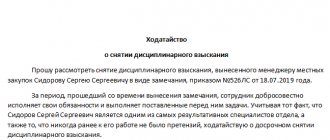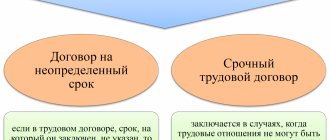People who for some reason are faced with the activities of such a body as the Federal Bailiff Service sometimes pay attention to a term that is not entirely clear to them - other collections of a property nature not to the budgets of the Russian Federation.
Considering the absence of this concept in any laws of our country, it is quite natural that a person wants to figure out what such a term means, what it is associated with, and what to do in such a situation? In this material we will try to answer all the questions posed.
What it is
Other recoveries of a property nature not to the budgets of the Russian Federation are all mandatory payments by court decision made in favor of individuals/legal entities and non-governmental organizations. In fact, the answer lay in the definition itself - such a measure can be chosen only if there is a need to compensate/repay a loan to a private organization (bank, microfinance organization).
Let's try to briefly go over the essence of the definition:
- Collections of a property nature – return of financial assets, illegally obtained property + in case of failure to comply with the conditions for obtaining property.
- The last point has a striking example - failure to fulfill an installment payment agreement, which is gaining popularity in the area of apartment sales. The essence is simple - a new buyer is offered to purchase living space in several payments, an agreement is drawn up. One of the obligations is mandatory payment, failure to comply with which is subject to a fine.
- The last agreement is concluded with an individual/legal entity, and not the state - which means the debtor is obliged to pay the agreed amount NOT TO THE STATE.
How to avoid paying the performance fee
If everything is paid without objection, the decision is not sent to the bailiffs, and no penalties are imposed from above. Also, the debtor will be released from paying the fine when the debt is repaid within the period allotted by the executor. Proof may be a receipt indicating the date of payment, a deed of transfer of property, or another document. However, this amount will not have to be sent to the federal budget if:
- the delay was caused by extraordinary circumstances or force majeure events;
- it was decided to defer or installment payment;
- it was possible to achieve the cancellation of the decision (in this case, the previously paid fee is returned to the payer);
- for certain categories of cases.
Read Challenging the debtor's transactions in the event of bankruptcy of a legal entity: period, terms
If there are unavoidable circumstances, this fact must be proven directly to the contractor. Since the legislation does not contain a specific list of such events, you will have to rely on the subjective assessment of the official. The refusal is disputed in a higher authority or in court.
When a decision is overturned by way of cassation or supervision, the proceedings are completely terminated, which means the person does not owe anything. Also, sanctions are not imposed upon proof of innocence in missing deadlines; there have already been similar disputes in judicial practice.
What exactly is subject to penalties?
There are quite a lot of options for court cases, the decisions made on which are often designated by bailiffs in this way. These primarily include the following:
Free legal consultation We will answer your question in 5 minutes!
Ask a Question
Free legal consultation
We will answer your question in 5 minutes!
Ask a Question
- A court decision on a loan debt to a financial organization. For example, the defendant is required to pay off a debt to a bank that went to court after he was unable to independently solve the problem of repaying the loan taken, interest on it and other costs incurred. Naturally, the money should return to a certain legal entity, and not to the budget of our country;
- When satisfying a claim from a legal entity or individual from whom another person borrowed funds. The situation is similar to the previous one, but here they can consider disputes between two ordinary citizens, one of whom lent money to the other, and he, for some reason, does not return it;
- When considering alimony cases. Everything is also quite logical, since the decision concerns material benefits - a day that must be paid by a person who is responsible for providing everything necessary for a minor child, but does not fulfill his duties, to another person who is doing just that;
- If necessary, oblige someone to compensate for damage associated with damage to the health of another person. The result of this situation is always the need to spend certain funds on treatment. It is quite logical that the person responsible for the incident is obliged to compensate them. For example, a person who caused another to suffer various injuries in a traffic accident. Or a store sign that was not properly secured fell on a citizen;
- When requesting payment of debt for one of the types of utility payments. The question also concerns the money that a person owes for a service rendered to him;
- A positive decision related to the need to compensate for moral damage caused by an individual or legal entity;
- Forcing the return of interest, which is accrued in some situations when using funds that do not belong to a person;
- Receiving money related to concluded contracts. For example, for renting a car, real estate, when selling or buying something when one of the parties does not fulfill its obligations.
This is also important to know:
What is the collection of penalties: everything you need to know
Naturally, the list does not include options related to the need to pay money in favor of one of the government bodies. Or situations not related to material wealth. For example, a family gets divorced and decides through the court exactly with whom and where their child will live. It is logical that a court ruling on such an issue cannot fall within the definition of this term, since it does not provide for the transfer of material benefits from one person to another.
Examples of such penalties
There are enough examples of non-state penalties:
- Late payments in a bank (non-state) - loan, installment plan, long-term mortgage.
- Non-payment of loan funds/delay in interest payments to microfinance organizations.
- Payment for treatment for serious bodily injury after the case is finally closed.
- Debt of companies to their own employees, as well as compensation for harm received by a citizen in the workplace (due to the fault of management, equipment malfunction).
- Delay in payment for housing and communal services, water utilities, and other utilities.
- Refusal to transfer alimony assigned to the child's mother/father by court decision without appealing the final decision.
Fee amount
The amount is not set arbitrarily, but according to rules defined by law:
- the fixed rate specified in the resolution is 7%;
- if the subject of recovery is property or the right to possession and disposal, the percentage is exactly the same (calculated from the market value);
- Bailiffs have no right to collect less than 1 thousand rubles. from individuals and individual entrepreneurs and up to 10 thousand - from enterprises and firms;
- in case of disagreements of a non-property nature, citizens and companies must pay 5,000 and 50,000 respectively.
It can be difficult to determine how much an item is worth. The performer does not calculate this independently. A few general rules:
- when claiming property, it is important to indicate its price;
- if the document does not contain such information, the bailiff should go to court to obtain such information;
- if there are objects that are not subject to assessment, the fee is set in the fixed amounts presented above.
An FSSP employee does not have the right to consult with appraisers or determine the value in other ways. All issues relating to prices for disputed items are resolved in court.
What to do if you discover such information
There are people who specifically go to the official Internet resource of the state bailiff service to look for information about themselves on it. Naturally, the majority do this for a reason, but on the basis of real suspicions that this particular body may be dealing with them.
What should you do if you discover information that a person is subject to other penalties of a property nature not in the budgets of the Russian Federation?
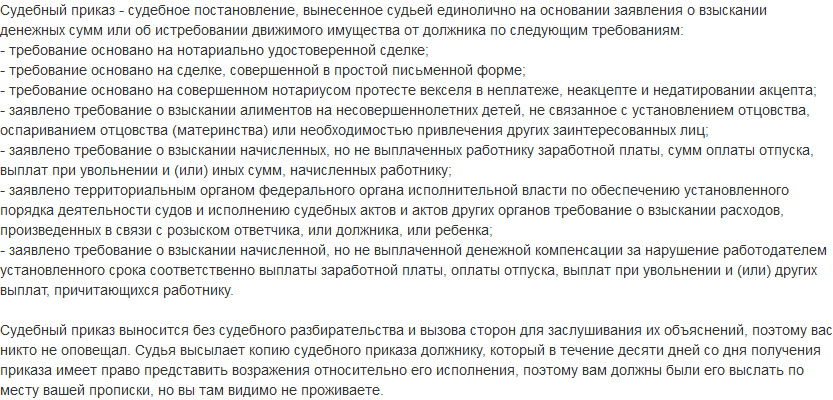
Some people do not quite correctly interpret such a proposal. For example, having found it on the bailiffs’ website, they begin to panic, thinking that collections will necessarily affect their property. That is, soon people in uniform will come and begin to take the TV and refrigerator out of the apartment, take away the car and computer. And they will do this in full view of all the neighbors.
This is also important to know:
Application for recovery of legal costs: writing sample
Yes, the above situation is quite possible. But it arises only in extreme cases, when there are no other possibilities for collecting from a person his debt, which is almost always indicated by a certain amount of money in Russian rubles.
Recommendations
First, carefully read the information received. This sometimes makes it possible to understand why a particular debt is imposed on a person.
Free legal consultation
We will answer your question in 5 minutes!
Free legal consultation We will answer your question in 5 minutes!
Call: 8 800 511-39-66
Ask a Question
The direct court decision can be found in your personal account on the State Services portal. Naturally, registration will be required. But it is in the decision made that one can read about what exactly the citizen is obliged to pay another individual or legal entity for a certain amount of money. It is clear that a copy of the court decision must be delivered to the person at his registration address. But, unfortunately, such letters do not always arrive, or the citizen is simply in a completely different place, and the people living at his old address decided not to inform him about anything.
Well, the last recommended step is not to delay the solution to this problem - it is better to contact the bailiff yourself at the contact number, make an appointment with him and come at the appointed time. And then, in fact, it’s time to figure out what, to whom, and why. And how can we finally close the question?
Reviews from people
It is quite natural that today you can find many reviews from people who have encountered the use of this term in relation to themselves or their loved ones:
- Semyon. One day I come home and my father starts shouting at me from the doorway. They say, he’s lived through it, now the bailiffs will come and take away everything, including his favorite sofa, a shame for life, and so on, in the same spirit. I waited until he screamed and asked what happened. It turns out that he accidentally found out on the State Services portal that a property penalty in the amount of more than ten thousand rubles had been imposed on me. Naturally, this also came as a surprise to me. I went to the site and carefully read the situation. It turned out that one of the mobile operators sued me - like I owe them money for failure to fulfill obligations under the contract, although several years ago I lost their card, called their office and asked for cancellation. Apparently my request was ignored, and summonses and warnings were sent to another city where we used to live, and not to a new address. I contacted the bailiff. They explained to me that I could try to overturn the court’s decision, which is what I’m doing now.
- Igor. I always recommend that if you take out loans, you check at the end that you don’t owe anything else to the bank. I somehow found myself in a very unpleasant situation. Borrowed money from the bank. Never missed payments. I paid everything on time. Well, I lived in peace. And then a notice arrives inviting me to visit the local bailiff office. I went and they showed me the decision, according to which I had to pay the bank - according to the wording described above, several thousand rubles. It turned out that I did not transfer some pennies when closing the loan. But the bank employee did not notify me about this. As a result, interest, penalties and the formation of a new debt. I had to pay. But now I took a piece of paper from them that I don’t owe anything else.
- Marina. My husband and I bought an apartment when the opportunity arose. The second, for the future. When the child grows up, we will pass it on to him. Well, it’s worth it, we’re not renting it out. Two years pass after the purchase, the husband somehow goes to the State Services website and sees a message there that a property penalty has been issued against him. Of course, this caused surprise, since the address was indicated for a new apartment. The water is turned off there, we don’t use electricity. For what? It turned out that we somehow forgot about heating, the debt for which had accumulated very serious and now we will have to pay it off. We agreed on installment payments, now we are paying them too, what should we do? But you can’t turn it off - all the walls will become damp, why do we need this?
- Matvey. I periodically check all Internet resources where there may be any fines against me. And so I went to the website of state bailiffs. I entered my last name. It turned out that there were some complaints on their part towards me. Incomprehensible penalties are indicated. And, interestingly, not towards the state. Of course, I went to find out. It turned out that it was my ex-wife who filed for alimony, calculating that I was not sending her enough money. What’s strange is that the court didn’t summon me. I didn't receive any notifications. Naturally, I appealed the decision, since my ex stated that I did not provide assistance at all, although I sent her a certain amount of money every month. Never missed a beat. Now a new meeting has been scheduled, where there is an opportunity to change everything a little. I don’t refuse to give my child money, but it’s him and as much as I really can, and not what my ex-wife wants.
- Konstantin. A very interesting situation has arisen. A father who for a long time paid monthly compensation to one person for personal injury caused during a traffic accident has died. It would seem that this issue should be closed. But no. For some reason, they put the blame on me, which is what a message appeared on the website of the Federal Bailiffs. Naturally, I was not at all happy with this decision. Made an appointment. We talked. It turns out that in order to exclude the transfer of debt by inheritance, it is necessary to submit an application to the so-called arbitration court, which should consider the request. Of course, that's what I did. I spent a little personal time, but completely corrected the situation in my own direction - I’m not to blame for what my father once did.
This is also important to know:
Can the debtor’s only home be recovered in 2021?
Reducing the performance fee - step-by-step instructions
The obligated person has the right to receive an installment plan, a deferred payment or a reduction thereof. In the first two cases, there is no talk of reducing the amount. The citizen documents the impossibility of paying bills at once. For example, this happens during dismissal, serious illness and other reasons.
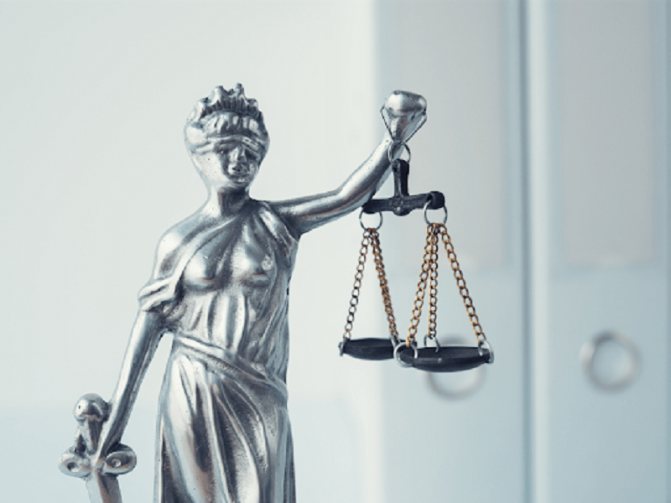
You can apply immediately after the decision is made, or upon full payment. To achieve what you want, you need to go through several successive stages.
Obtaining a resolution
You can submit a request to reduce the amount of the obligation only after reading the report issued by the bailiff. As long as there is no such paper, there are no grounds for reducing the fine. It is also impossible to file a challenge in advance until you have the required set of documentation in hand.
How to get a document:
- personal delivery against signature;
- by post (registered mail);
- after sending a request to the FSSP.
The legislator does not require the provision of a copy or the original original of the resolution. You can simply indicate its number and date, and other information. However, lawyers still recommend having everything you need on hand so that the process does not drag on for a long time.
Read How many times can debt collectors call a debtor?
Collection of evidence to reduce the amount
The complaint must be supported by documents, otherwise the petition will be unsuccessful. What does the judicial authority take into account when considering the issue:
- the degree of guilt of the obligated person that payments are overdue;
- property status of the debtor and his family members;
- other circumstances that may significantly affect the outcome of the case.
The entire evidence base is fixed on a tangible medium. For example, if a person is not to blame for not paying, he provides a certificate from the employer about the delay in wages (in the absence of other sources of income).
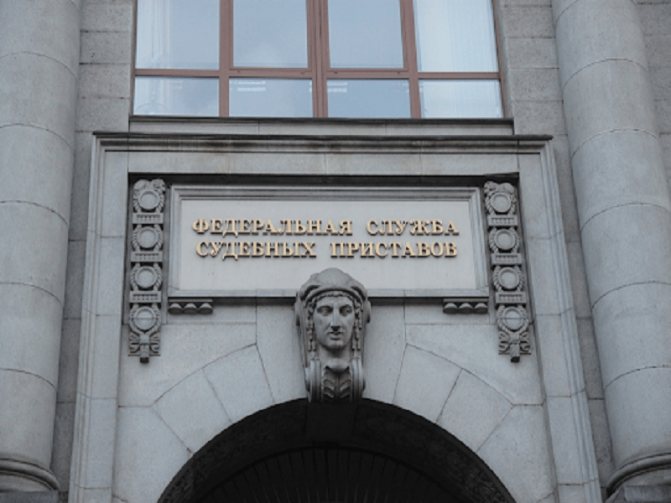
Submitting an application
When going to court, one should be based on the principle of territorial jurisdiction. For example, when a case is initiated based on an arbitration decision, an appeal is submitted to the same institution. When a document is issued by a magistrate, the issue of reducing payments is decided by a body of general jurisdiction.
Information indicated in the appeal:
- full name of the addressee;
- information about the debtor and the executor who made the decision;
- information about the documentation that became the basis for collecting the fee;
- reference to evidence confirming the legality of reducing the amount of the fine;
- a formulated request to satisfy the requirements;
- list of applications;
- date and signature.
The written request should be taken to the office or sent by mail (preferably by registered mail with notification, so it is unlikely to be lost). All manipulations can be carried out by an official representative. His powers must be secured in a power of attorney with the assistance of a notary.
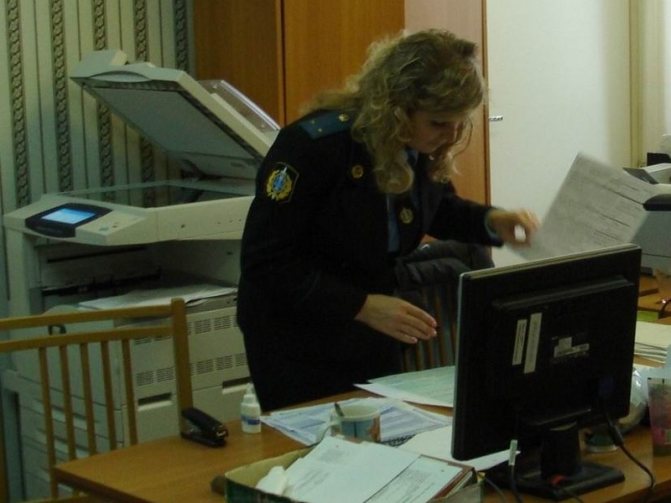
Consideration of the application
When a petition is registered in the manner prescribed by law, it means that the enforcement fee of the bailiffs (what it is and how it is claimed in 2021 is discussed above) is temporarily not collected until the study of the case on the merits is stopped. The obligated person participates in the process independently, engages an attorney, or declares that the documentation can be considered in his absence.
The court will carefully study all the evidence and other papers provided and evaluate the legality of issuing the acts. Federal service employees are notified of the meeting in advance and are invited to it as an interested party. If necessary, the judge may request case materials and other documents in order to resolve the issue legally and fairly.
Solution
It is the debtor who declares them who needs to prove the legality of their claims, and not the claimant, the state, the FSSP, etc. Often, the judicial authority decides to reduce the amount of penalties, but it cannot be reduced by more than a quarter. The exact amounts of the monetary penalty are indicated in the operative part of the resolution.
If the request has been fully granted, the act comes into force immediately without the possibility of appeal within a certain time frame. Sometimes the court completely exempts a person from paying. This is possible in the absence of grounds for prosecution in civil proceedings.

